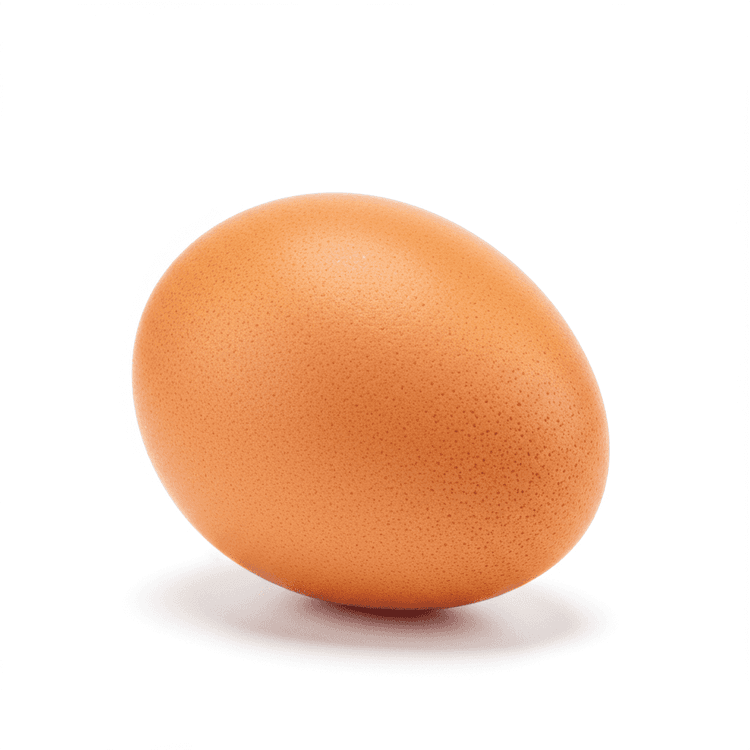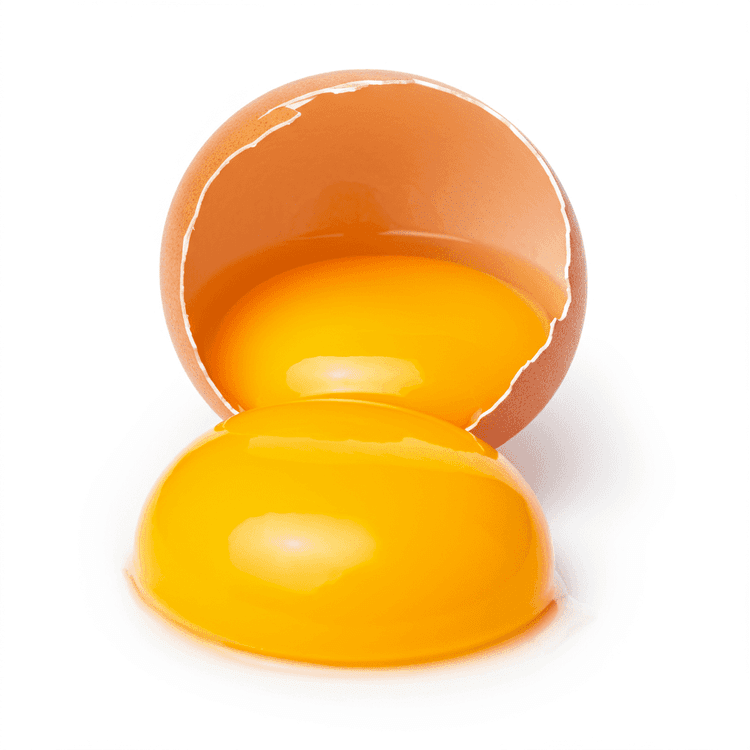
Whole Egg
Whole eggs are a versatile and essential ingredient in countless recipes. They are characterized by their oval shape and smooth, hard shell, usually white or brown in color. Inside, you'll find a viscous, clear egg white surrounding a rich, golden-yellow yolk. Whole eggs provide structure, richness, and moisture to baked goods, acting as a binding agent and emulsifier. The flavor is mild and slightly creamy, allowing them to complement both sweet and savory dishes. Use fresh whole eggs when preparing breakfast, lunch, and dinner for the best results. They are commonly used in baking, cooking, and as a nutritional power house, offering protein and vitamins.
Common Uses
- For fluffy scrambled eggs, whisk whole eggs with a splash of milk or cream and cook over low heat, stirring gently until soft curds form.
- To create a rich and creamy custard, combine whole eggs with milk, sugar, and vanilla extract, then bake in a water bath until set.
- When making homemade pasta, use whole eggs to bind the flour and create a smooth, elastic dough that can be rolled out thinly.
- As a binding agent for meatballs and meatloaf, incorporate whole eggs into the mixture to hold the ingredients together and add moisture.
- Use whole eggs to make a french toast batter and soak the bread until it is fully saturated, then cook on a hot griddle until golden brown.
- Coat chicken, fish, or vegetables with beaten whole eggs before breading them to help the breadcrumbs adhere and create a crispy crust when fried.
Nutrition (per serving)
Nutrition (per serving)
Calories
71.5kcal (3.57%)
Protein
6.3g (12.52%)
Carbs
0.4g (0.13%)
Sugars
0.2g (0.38%)
Healthy Fat
3.1g
Unhealthy Fat
1.7g
% Daily Value based on a 2000 calorie diet
Nutrition (per serving)
Calories
71.5kcal (3.57%)
Protein
6.3g (12.52%)
Carbs
0.4g (0.13%)
Sugars
0.2g (0.38%)
Healthy Fat
3.1g
Unhealthy Fat
1.7g
% Daily Value based on a 2000 calorie diet
Health Benefits
- Rich in high-quality protein, essential for muscle building and repair.
- Excellent source of choline, crucial for brain health and cognitive function.
- Contains vitamins A, D, E, and B12, supporting overall health and immunity.
- Provides essential minerals like iron, zinc, and selenium, vital for various bodily functions.
- Offers antioxidants like lutein and zeaxanthin, promoting eye health and reducing the risk of macular degeneration.
- Can contribute to feelings of fullness and satiety, potentially aiding in weight management.
Substitutes
Chefadora AI is here.
Experience smarter, stress-free cooking.
Storage Tips
Store whole eggs in their original carton inside the refrigerator. This helps to maintain a consistent temperature and prevent the eggs from absorbing odors. Keep them away from strong-smelling foods. Avoid storing eggs on the refrigerator door, as temperature fluctuations can cause them to spoil faster. Properly refrigerated eggs can last for several weeks beyond the "sell-by" date. For longer storage, crack the eggs, whisk whites and yolks together, and freeze in airtight containers or freezer bags for up to a year.
Marnirni-apinthi Building, Lot Fourteen,
North Terrace, Adelaide, South Australia, 5000
Australia

